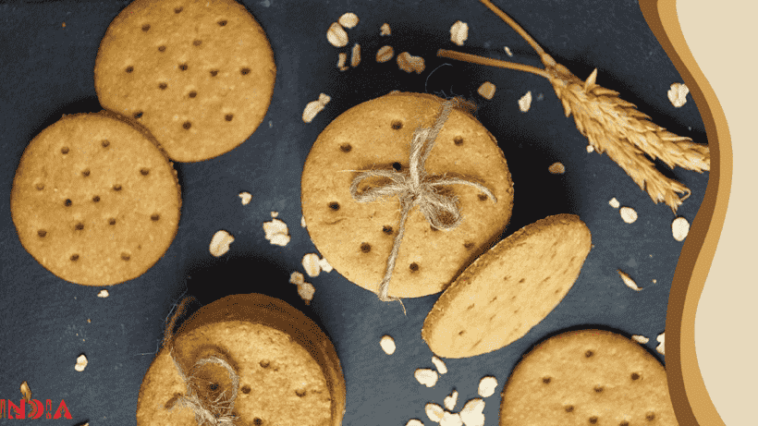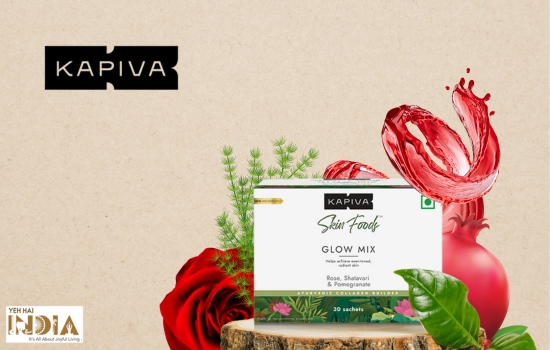So many claims and so many statements, but the end result is far more concerning than anything. Consumption of digestive biscuits has been becoming a trend saying they are healthier than normal biscuits and are made of wheat.
The advertisement is so aesthetic and relaxing to just watch – It’s a nice winter morning and you are sitting near the window sipping your nice hot tea and someone gets you biscuits and the bite is soo crunchy and soo tasty. And, by the end of the advertisement, you plan to have the biscuits as soon as possible. Or, you choose these biscuits wisely from the packed shelves of a food mart thinking, this could be the easiest way to have a quick and full ‘fibre-rich’ breakfast.
Does this sound familiar?
There have been tremendous ways that have made people think and believe in gimmicks, which showcase fibre as the only important nutrient you need to check and have when it comes to eating healthily.
But is fibre actually healthy?
Yeah, it is, but it is just not the only one you have to consider while buying a snack and certainly not to make it as a whole meal for the biggest and most important fast-breaking meal of the day – your breakfast.
Digestive biscuits – Yay or Nay?
They say these digestive biscuits are so healthy and nutritious because they are made out of what and not maida. But isn’t maida also a refined ‘WHEAT’ flour?
There are endless questions and endless excuses to make us choose these biscuits over a nice and healthy breakfast.
All you need to do is choose wisely because having it rarely and having it often can be that turning point, which might be the one coming in between you and a healthy lifestyle.
So let’s just go through the facts and then make a decision, because science never lies.
What are digestive biscuits?
The name ‘digestive’ gives them an edge by viewing them as biscuits which either help in digestion or are easy to digest. But actually, the name is because of its main leavening ingredient – baking soda, which is considered to help with digestive issues.
As science progressed, research showed that baking soda lost its capacity of helping with digestive disorders after being processed, which lead to the loss of its main benefit.
But, the name stayed, leaving us to believe it to be a part of health-promoting or assisting biscuits. Interesting, isn’t it?
Recommended Story – 15 Best Foods for Healthy, Clear, and Glowing Skin
Decoding Ingredients in Digestive Biscuits
1. Refined Flour

Digestive biscuits are certainly unhealthy for gluten-sensitive people due to the presence of wheat flour. In addition to that, the flour is semi-refined which makes it even more unhealthy. An excessive amount of refined flour intake can lead to adverse health outcomes, including increased risk for cardiovascular disease (CVD), type 2 diabetes (T2D), obesity and many stomach issues including impaired bowel movements.
But are they whole wheat? Find out how to learn what is being added to your snacks.
As per the Indian labelling system, the ingredient present in the highest quantities comes first and that follows the descending order.
Let’s open our shelves and check the label on the biscuits. Most of the ingredient labels will show refined wheat flour as the first ingredient. The Maida, that you have been trying to avoid caught up to you eventually.
So, what about the fibre and why do I see it on the label and where is it? Let’s get back to the nutritional content on the label. Yeah, see the fibre mentioned there. But how much is it actually? 6 g – 7 g but that’s the quantity present in 100 g of biscuits.
We rarely consume more than 2-3 biscuits at a time, so the fibre is around 3 g with 200 – 300 calories. When just a medium size apple can give you that much fibre easily with 100 -150 calories.
2. Added Sugar

Healthy eating involves cutting down sugar intake to a bare minimum and preferring natural sugars to artificial or added ones. Let’s go back to the label again.
Added sugars are the ones which are separately added by the manufacturers, which we can find on the ingredient label as maltodextrin, malt extract, etc.
Are these diabetes-friendly? The above are the hidden names of sugars which are present which research shows can only lead to increased weight gain, risk of diabetes, etc. and not the other way.
3. Fats

Digestive biscuits use palm oil in the processing which is majorly refined. These refined oils contain many harmful petrochemicals and are not heat stable. Palm oil in specificity is rich in saturated fats, which on regular consumption can have various health hazards.
4. Sodium

Digestive biscuits are high in sodium and can prove to be extremely disadvantageous for people suffering from high blood pressure. The amount of sodium is as much as a pack of chips hence they should be steered clear in order to prevent blood pressure issues.
Just four digestive biscuits impart as much sodium as a packet of chips, something that can’t be ignored. High sodium intake can lead to hypertension and strokes for many people and their immoderate intake can worsen the effects.
5. Absence of Vitamins and Minerals

The digestive biscuits impart no nutritional benefit of any kinds of vitamins and minerals. They only provide carbohydrates and fats majorly.
The best way to enjoy the nutritional benefits of digestive biscuits is when they are made at home. You can make them with butter, oatmeal, whole wheat plain flour or any other flour such as ragi, etc. along with soda and milk.
The benefits of digestive biscuits can only be served when they are homemade rather than bought from the market. Consumption of digestive biscuits when there’s no other choice and you need a snack to curb your hunger is not going to affect your health. But it serves no purpose to make it a habit when you are looking to improve your lifestyle.
While considering biscuits in such a situation, it is important to compare the labels. You should also go through the nutrition profile before choosing the comparatively healthy one.
Also Read – Pulses of India: A Flavorful Journey
Frequently Asked Questions
Are digestive biscuits considered a healthy snack option?
Digestive biscuits can be a healthier alternative to many other types of sweet treats or cookies. They typically contain whole wheat flour, which provides more fibre compared to refined flour. The high fibre content helps promote better digestion and can contribute to a feeling of fullness. However, it’s important to remember that digestive biscuits still contain added sugars and fats, so portion control is key to maintaining a balanced diet.
Do digestive biscuits aid in digestion as their name suggests?
While digestive biscuits may contain ingredients like whole wheat flour and fibre that can support digestive health, their name can be misleading. The term “digestive” originated from the belief that the sodium bicarbonate (baking soda) present in these biscuits could act as an antacid to aid digestion. However, the actual digestive benefits provided by digestive biscuits are minimal, and a well-balanced diet rich in fruits, vegetables, and whole grains is more effective for maintaining good digestive health.
Are there healthier alternatives to traditional digestive biscuits?
Yes, there are healthier alternatives available. Some brands offer digestive biscuits made with whole grains, reduced sugar, and healthier fat options. Additionally, you can explore other nutritious snacks like whole fruits, unsweetened yoghurt, nuts, or homemade granola bars. These alternatives provide more natural nutrients and fewer additives, giving you a healthier snack choice while still satisfying your cravings.
Are there any potential downsides to consuming digestive biscuits regularly?
While digestive biscuits can be enjoyed as part of a balanced diet, there are a few points to consider. Some varieties may contain trans fats or excessive added sugars, which can have negative health effects if consumed in excess. Relying too heavily on packaged snacks, even healthier options, can lead to a lack of nutrient diversity.









